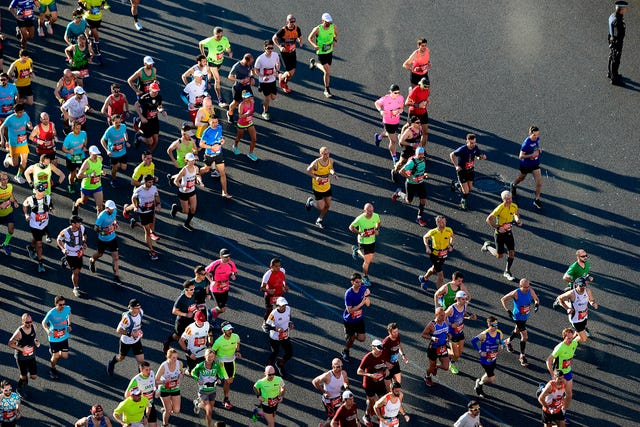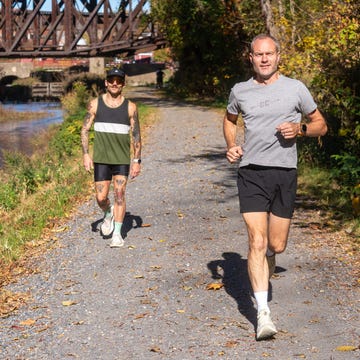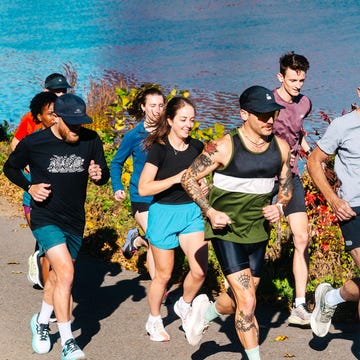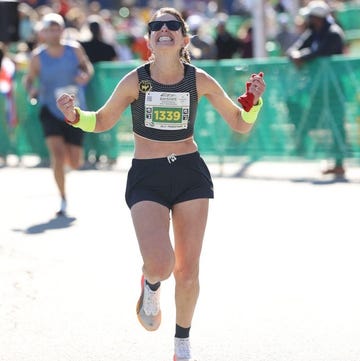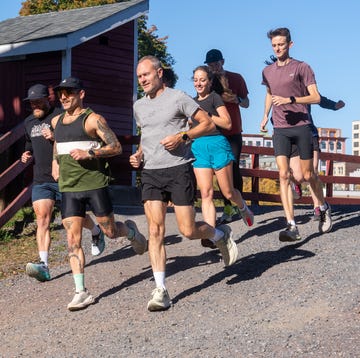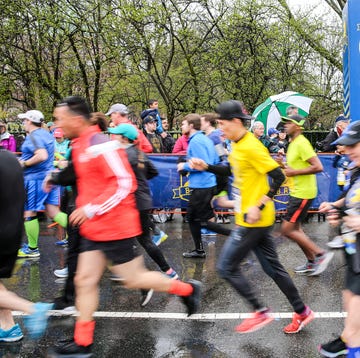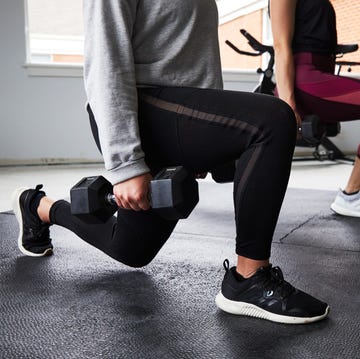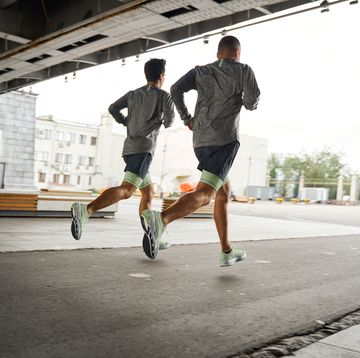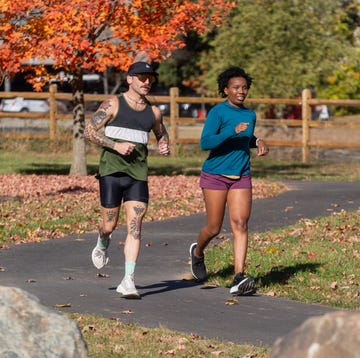When 44-year-old Brian Johnston arrived at the start line of the California International Marathon in December 2019, he was exceptionally well trained. But he wasn’t well rested. During the month before the race, he only slept three to four hours a night, and the situation didn’t improve when he crossed the finish line. “After the race I was up until 3am, a full 24 hours after I’d gotten up. I’ve wondered if anyone else goes through this.”
Turns out, they do. Lack of sleep during peak training and after races was cited as a top concern in a recent Runner’s World poll. This tracks, according to Martin Reed, M.Ed., certified sleep educator and founder of Insomnia Coach, an online sleep coaching consultancy. “People who are more health-conscious, and this certainly includes runners, seem to be more prone to insomnia.” And even short-term insomnia may impact your performance.
The link? Cortisol, a stress hormone that builds up during intense exercise, says Carissa Alinat, Ph.D., an advanced practice registered nurse. Athletes’ cortisol can remain elevated for weeks after periods of intense training, according to research, even among those who taper in the weeks leading up to a race. Sleep loss, in turn, triggers the body to produce more cortisol, creating a vicious sleepless cycle that can last for months.
Elevated cortisol is particularly bad for athletes who experience more insomnia as mileage builds because it reduces the amount of deep, recuperative slow-wave sleep that helps you recover from heavy training and hard racing.
[Running in the Cold Runner’s World Training Plan, designed for any speed and any distance.]
Competition days seem to be particularly hard on sleep, as Johnston found out. Research shows that athletes’ cortisol levels increase, and sleep quality suffers immediately following a race, compared to training and rest days. The schedule disruption—travel, eating outside your regular mealtimes—that accompanies a competition can also play a role, says Jason Koop, head coach for CTS-Ultrarunning.
Getting better sleep pre- and post-race may be a matter of simply not trying so hard, says Vanessa H. Roddenberry, Ph.D., a licensed psychologist specializing in cognitive behavioral therapy for insomnia, or CBT-I, a proven treatment for insomnia involves shifting your thoughts and behaviors around sleep. “You’re still doing things, just more proactive things.” Here, seven CBT-I strategies to try the next time you’re lying awake staring at the next morning’s race bib.
1. Don’t force sleep
It’s counterintuitive, but spending more time in bed can do more harm than good, says sleep specialist Michael Breus, Ph.D. The more time you spend in bed wishing you could sleep, or feeling upset because you can’t sleep, the less high-quality sleep you’ll actually get, because you’ll mentally link your bed with stress, not sleep. And stress is proven to decrease slow-wave sleep, according to multiple studies. “Often if you go to bed with the idea that you don’t intend to sleep, you release yourself from the pressure of the situation. Then if sleep comes, it's a nice surprise,” says Roddenberry. But if you reassociate (known as stimulus control therapy) your bed with sleep instead of wakefulness, it can help you develop a more consistent sleep schedule. In the meantime, if you’re unable to fall asleep after 20 to 30 minutes, Roddenberry recommends getting out of bed and trying a relaxing activity such as reading or meditating. Once you feel sleepy, return to bed.
2. Stop trying to squash worries
The night before a big event, the script of anxious thoughts that follows you to bed can leave you reeling. “The best thing an athlete can do if they find a worry narrative playing either before or after a big race is to let the worry happen,” says Roddenberry. Let that unwelcome reel of a dismal race or those nagging worries about an old injury simply play out. “Notice the worry and ask yourself if it’s really true or if you have evidence for it. Then let it pass.”
3. Only go to bed when you’re tired
Going to bed early the night before a race can backfire, says Reed. “When we try to sleep before our body is ready, we’re less likely to fall asleep.” He recommends going to bed when you feel tired enough to sleep, getting up if you can’t sleep after 30 minutes of trying, and returning to bed when you feel sleepy.
4. Don’t fuel your run with caffeine
Unless you’re running through the night for a high-mileage ultra, switch to non-caffeinated fuels and recovery drinks after noon to protect sleep, says endurance coach Jason Koop.
5. How to Adjust Your Run Schedule After a Big Race
Going to bed and getting up at the same time (plus or minus 30 minutes) every day is one of the best things you can do to get your sleep back on track after a race or long training run, says Koop.
6. Runners World Training Plan
While lots of sleep professionals recommend naps, they can wreak havoc on runners trying to get back on track after a bout of insomnia. “Instead of taking a nap, accept that you’ll be tired that day, stay up all day, then go to bed when you’re tired that night. You’ll build your drive for sleep, which helps you sleep better at night,” says Reed.
7. All About 75 Hard
“A moderate training acceleration, building mileage by 10 to 20 percent each week, can help runners avoid that training-related insomnia,” says Breus.
Above all, don’t let a few sleepless nights sabotage your training and racing goals, says Rodenberry. “Remember, wakeful rest is still helpful and restorative. Your hard work and training doesn’t evaporate just because of a poor night's sleep.” Johnston finished his marathon in California with a hard-fought 3:14, a few minutes off his personal best time of 3:11. The next time he toes a starting line, he hopes to be less fatigued. “I’m working with a sleep coach and doing all the sleep hygiene things. Before I start my next training cycle, I’m going to try to build a base of quality sleep!”
